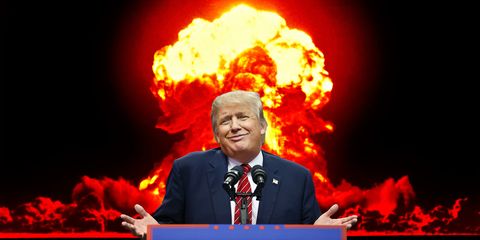I question whether we could defeat the conventional ground forces in Iran.It depends on the goal. It would be possible to defeat the conventional military and bring down the current regime. You can't do guerrilla warfare with ships, aircraft and tanks, and most of their equipment is outdated and/or out of service. Their current military has almost zero experience of modern conventional conflict and hasn't the means to train for it.
The problem is what happens after that phase and without accepting total war it would be pretty much impossible to make any headway. You would assume given the last 20 years the US goal would be to install their own puppet regime. They could do it, but it would be extremely unlikely to last in a place like Iran.
The country is something like 75% mountains and the rest desert, but you have to go through the mountains to get to the desert. That means the cream of our Army, the armored divisions, are largely irrelevant.
We would be fighting in a hot Switzerland with the population of Germany. That’s not a recipe for success.





